Transforming Your Career with a Culturally-Inclusive Approach to Counseling
The Webster University Department of Professional Counseling is dedicated to preparing the next generation of expert counselors. Our department’s mission is to provide high-quality learning experiences to students, helping them become expert professional counselors who strive for individual excellence and contribute to an enhanced quality of life in local, national and global societies.
Our curriculum is designed to help you become an expert professional counselor, equipped with the knowledge and skills to make a difference in local, national, and global communities. Our program offers a culturally-inclusive curriculum that provides a strong foundation of knowledge and skills, preparing you to practice effectively across a wide range of careers in mental health, human services, government, private practice and even business settings.
Hands-On Training
You won't just learn theory; you'll apply it through comprehensive clinical counseling field experience.
Small Class Sizes
With a maximum of 24 students, our classes create an ideal environment for interactive learning and discovery.
Proven Track Record
For over 30 years, we've successfully prepared students for careers in the counseling profession.
Our Academic Standards
The department's philosophy is rooted in a commitment to developing your professional identity as a counselor. Our curriculum promotes social justice with a global approach and aligns with national professional standards, state requirements and the American Counseling Association (ACA) Ethical Code. This ensures a high-quality, uniform and flexible education across all of our campuses, led by our dedicated faculty.
Learn more about our expert faculty at the St. Louis unit, the South Carolina/Online unit and the Geneva Campus unit pages.
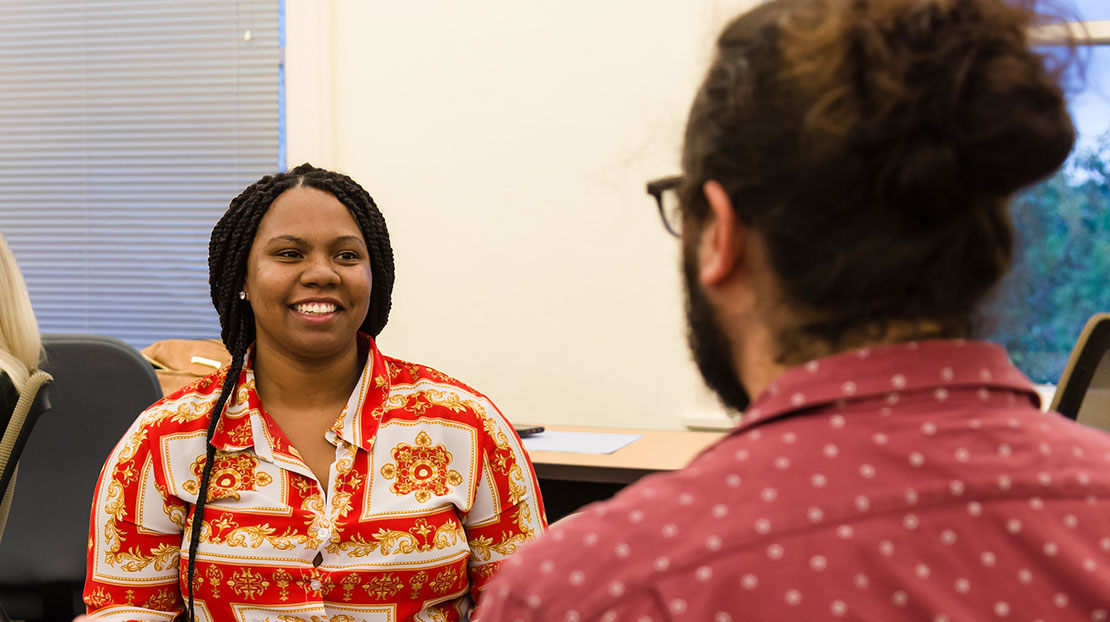
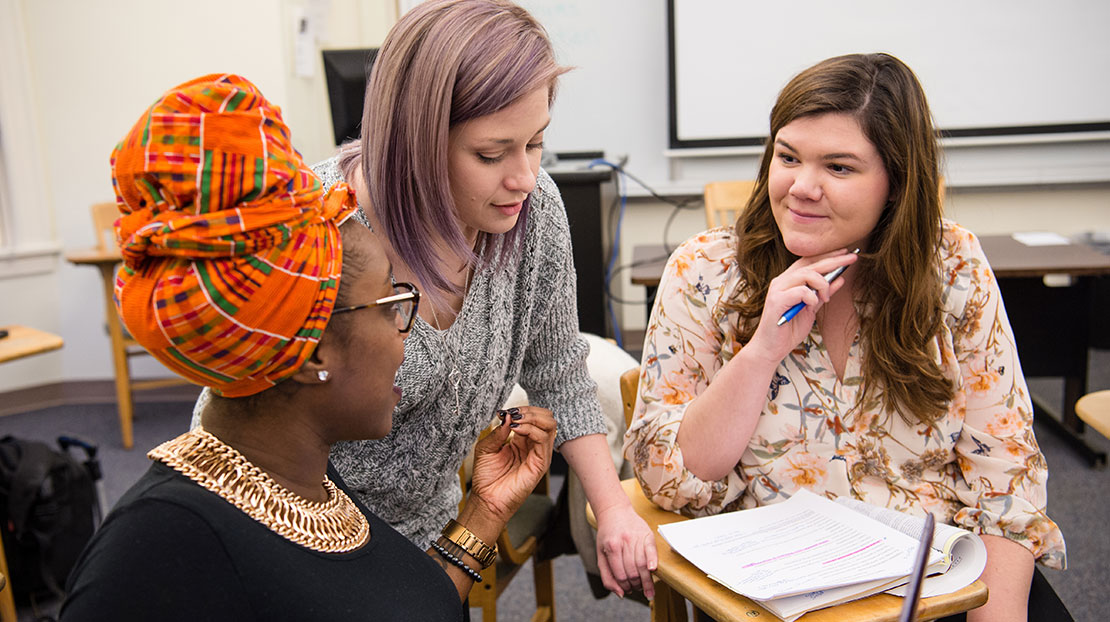
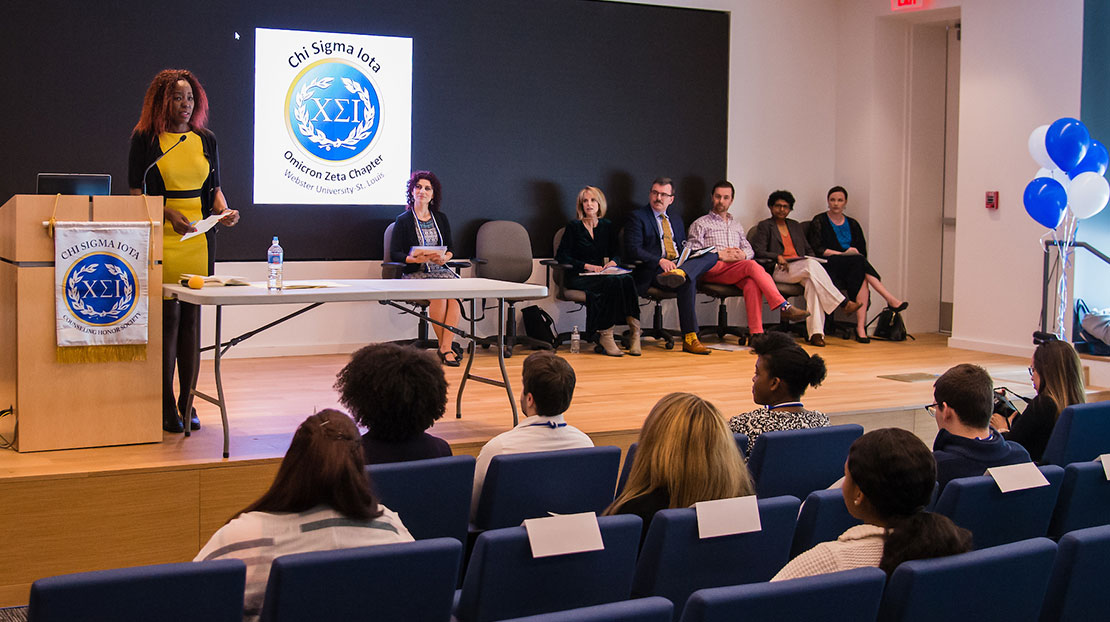
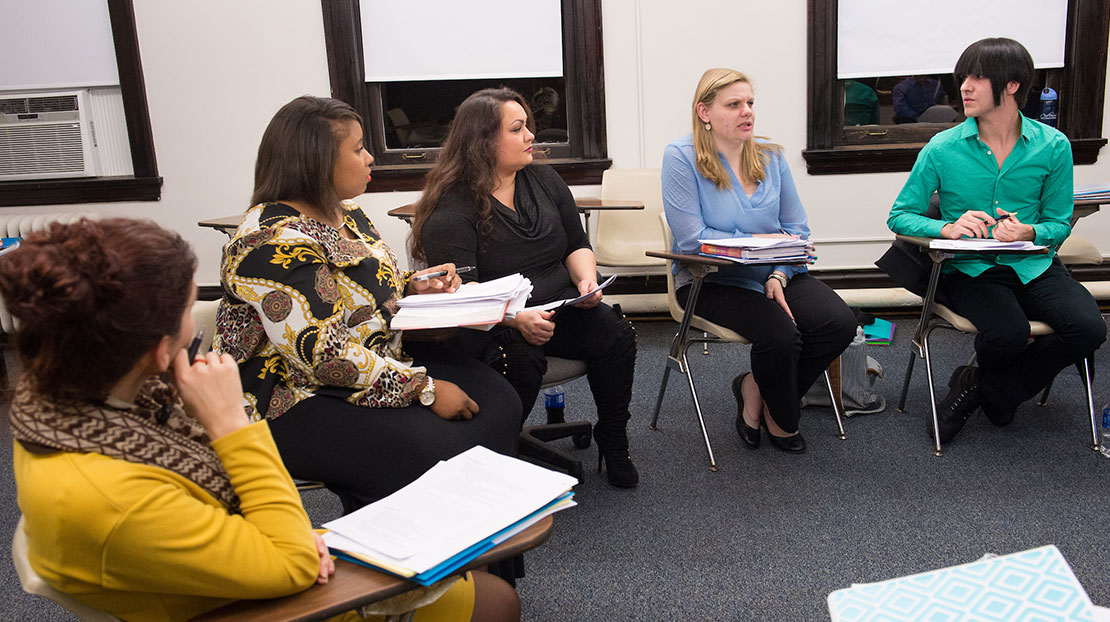
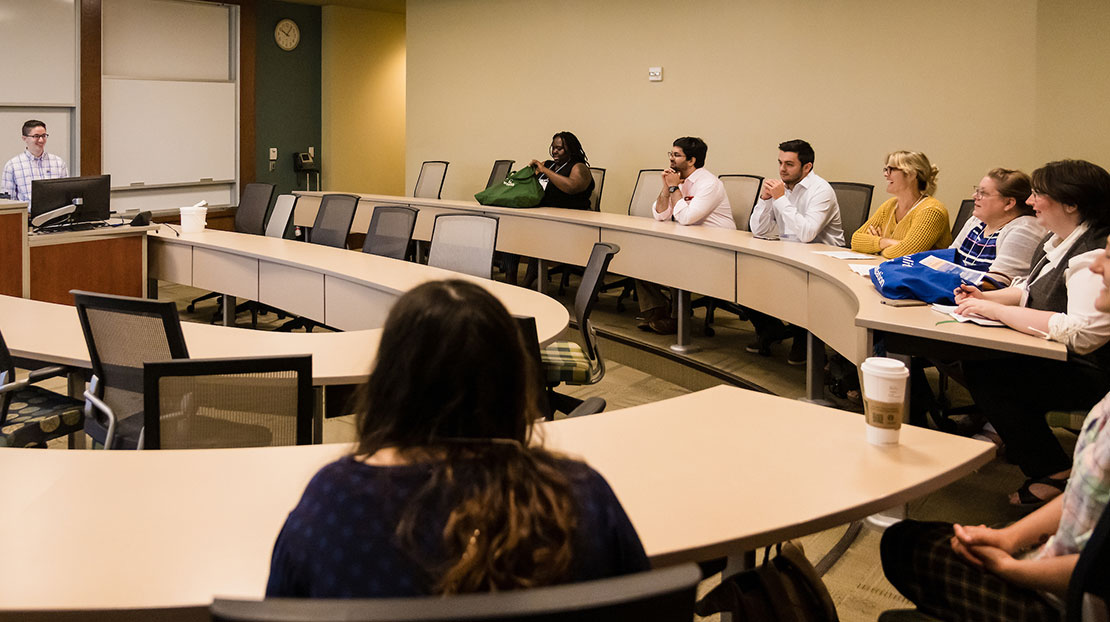
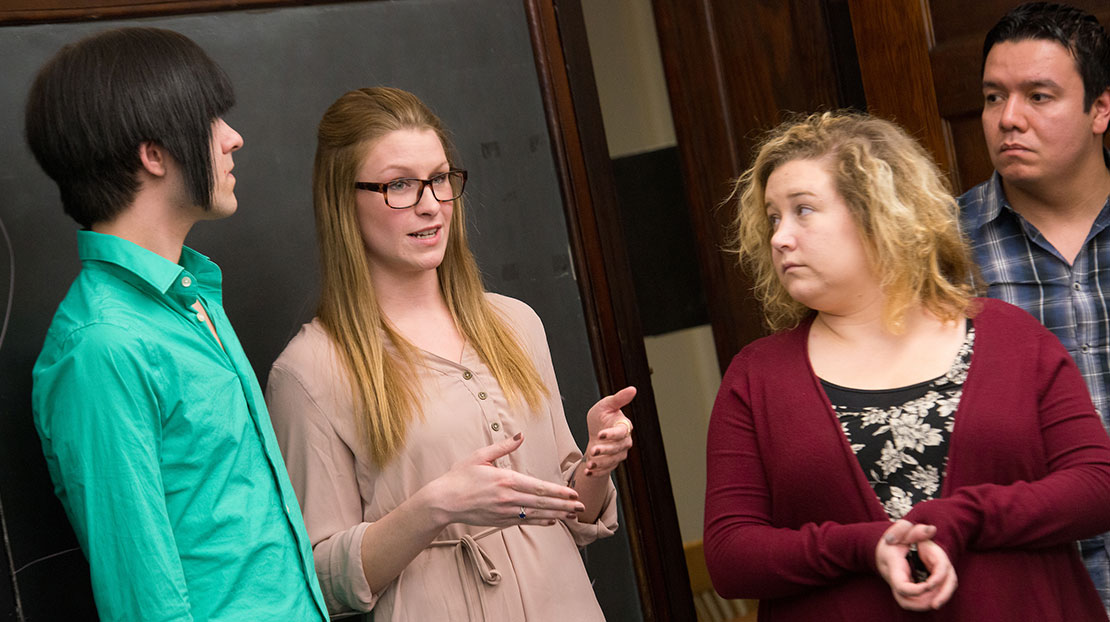
Graduate Program Pathways to a Counseling Career
We offer flexible program formats to fit your needs, with options for both in-person and online learning.
Master of Arts in Counseling
Our core MA in Counseling program prepares you for a growing profession. The curriculum blends classroom education with hands-on field experience, providing you with the skills to work with individuals, couples, families, and children in various mental health settings.
Specialty Area Emphases Available:
-
Clinical Mental Health Counseling: Offered at our main campus in St. Louis, Missouri (CACREP-accredited) and in South Carolina/online (CACREP-accredited in select states).
-
Community Counseling: Available at our Geneva, Switzerland campus (SGfB-accredited).
Accelerate your path to becoming a professional counselor with our combined bachelor's and master's degree program. This unique pre-counseling program allows you to save time and money by seamlessly transitioning from your undergraduate studies to a graduate degree.
How It Works
This program combines the BA in Psychology with an Emphasis in Mental Health and the MA in Counseling. As an undergraduate, you can begin taking graduate-level courses that count toward both your bachelor's and master's degrees.
After completing at least 108 undergraduate credit hours and completed all bachelor's degree requirements, you can use your final 12 undergraduate elective hours to start your master's coursework. Once you've earned a total of 120 credit hours, you can graduate with your BA and continue directly into the MA program to complete the remaining 48+ graduate-level hours.
Key Program Details
- Location: This program is open to undergraduate students at our main campus in St. Louis.
- Residency Requirement: You must complete at least 30 of your final 36 undergraduate hours at Webster University.
- Financial Aid: Your financial aid status will change from undergraduate to graduate once you begin taking graduate-level classes. We encourage you to speak with the Financial Aid Office to understand how this may affect you.
- Competitiveness: Admission to this program is competitive. While acceptance is not guaranteed, we encourage you to apply. If you're not accepted into the pre-counseling program, you can still apply to our MA in Counseling program after completing your bachelor's degree.
Proven Results
We're proud of our outcomes for graduates of the MA in Clinical Mental Health Counseling program. Our students are well-prepared for their careers, as shown by strong pass rates and successful job placement.
- National Counselor Examination (NCE) Pass Rate: In 2024, our students had an 91% pass rate on the NCE.
- Job Placement Rate: Recent graduates have a strong job placement rate of over 55% at our St. Louis campus and 80% for South Carolina and online graduates.
“Webster University has really set me up for a life of service and serving underprivileged, communities in St. Louis. I've made lifelong friendships in this program.”
MA in Counseling with an Emphasis in Clinical Mental Heath, ’25
Learning Outcomes
- Develop a professional orientation and identity as a counselor by applying sound ethical, legal, advocacy and supervisory practices which lead to success as a mental health counselor.
- Identify the cultural context of relationships, issues and trends in a multicultural society that impact the counseling process.
- Synthesize theories of human growth and development to develop culturally responsive counseling practices.
- Apply theories and models of career development to related life factors in multicultural contexts appropriate to an individual's work, family and lifestyle.
- Develop an empirically based approach to counseling that emphasizes wellness and prevention by integrating theory and best practices.
- Apply theoretical and experiential understandings of group approaches to counseling to develop targeted interventions within a multicultural society.
- Apply individual and group approaches to assessment and evaluation in a multicultural society.
- Utilize statistical concepts, research methods, needs assessment and program evaluation skills commonly used in the counseling profession.
In addition to the Counseling core program learning outcomes, this emphasis has the following learning outcomes:
- Apply ethical and legal standards, as well as knowledge of public mental health policy, financing and regulatory processes to mental health counseling.
- Implement mental health counseling principles and practices associated with education, prevention, consultation and intervention.
- Describe how living in a multicultural society impacts clients and apply effective advocacy strategies to enhance mental health services.
- Employ various assessment techniques associated with professional mental health counseling to appropriately intervene in meeting the needs of diverse clients.
- Apply evidence-based research literature associated with professional mental health counseling to meet the needs of clients living in a diverse society.
- Implement diagnostic tools appropriate for mental health counseling professionals to diagnose disorders in diverse clients.
Professional Counseling Department Resources
As a prospective student, you likely have questions about admission requirements and the application process. This section provides all the information you need to get started, from admission criteria to important forms.
Admission Criteria
All graduate school applicants complete the online application and submit a $50 application fee.
Applicants to the Master of Arts in Counseling program must have a bachelor's degree from an accredited institution.
- A minimum cumulative GPA of 2.5 (on a 4.0 scale) is required for the clinical mental health emphasis.
In addition to the academic requirements, applicants must submit the following:
- Official transcripts from all previously attended colleges and universities.
- Three professional references (at least one should be from a former professor/instructor). Download Counseling Recommendation Form (PDF)
- A current résumé detailing education and work experience.
- A personal essay (minimum of three pages, double-spaced) outlining professional interests, background, career goals and aptitude for graduate-level study.
- Participation in a personal interview is also required to assess the applicant's suitability for the program and the counseling profession.
Minimum Degree Requirements
To complete the MA in Counseling program, students must meet the following requirements:
- Successful completion of a minimum of 60 credit hours of graduate coursework.
- Completion of all required core courses, specialized courses and clinical field experiences. View available course descriptions.
- Fulfillment of all academic and professional standards as outlined in the Counseling Student Handbook.
- A minimum GPA of 3.0 is required for graduation. A Petition to Graduate form is completed at the beginning of the final term.
For more detailed information, please refer to the General Admission Information and Additional Admission Requirements for MA in Counseling Program sections of the University catalog.
Program Costs
The MA in Counseling requires a minimum of 60 credit hours to complete.
- Tuition: For the 2025-2026 academic year, graduate tuition is $775 per credit hour. This rate is subject to change.
- Application Fee: There is a one-time, non-refundable application fee of $50.
- Other Potential Costs: Students should also budget for additional expenses, including:
- Books and supplies (estimated at $125 per course).
- Matriculation fee of $150.
- Graduation fee of $130.
A more comprehensive list of fees can be found in the Graduate Tuition and Fees section of the University website. Students who need a detailed breakdown of costs can request a personalized report from the Office of Admissions, by calling 314-246-7800 or 800-753-6765 or sending an email to admit@webster.edu.
Financial Aid Information
Webster University offers various financial aid options to assist graduate students with program costs. The primary sources of aid are through federal and private loan programs.
To apply for financial aid, students should:
- Complete the Free Application for Federal Student Aid (FAFSA). Webster University's Title IV code is 002521.
- Complete the Webster University Graduate Financial Aid Application.
Available financial aid options include:
- Federal Direct Unsubsidized Loans: Non-need-based loans available to eligible students. Interest accrues while the student is in school.
- Federal Direct Graduate PLUS Loans: Allows students to borrow up to the cost of attendance.
- Private/Alternative Education Loans: Offered by private lenders with varying terms and conditions.
Additionally, a limited number of scholarships may be available. Students are encouraged to explore options such as the Grad-to-Grad Scholarship for eligible Webster University alumni and scholarships for International Graduate Students or Military-Affiliated Students.
For detailed information on financial aid, including the types of loans and scholarships available, please visit the Graduate Financial Aid section of the university website.
These resources are designed to support your academic progress and field experience throughout the program.
- Recommended plan of study: Full-time Fall start
- Course descriptions
- Counseling Student Handbook
- Petition to Graduate
- Webster University Student Counseling Center
- Field Experience:
- Steps to Follow When Pursuing Field Experience (PDF)
- Tevera Management System: Access the system for all clinical documentation, including Weekly Hour logs, agreements and evaluations.
Access key documentation and the management system needed to support our student trainees.
Explore these valuable resources for information on professional associations and industry standards.
The Webster Institute for Clinical Scholarship (WICS)
WICS supports students and faculty through professional development and initiatives focused on clinical research. Our mission is to increase the number of graduates committed to working in high-need areas to improve health outcomes for underserved and marginalized populations.
WICS Research Team
The WICS Research Team promotes health equity by working to reduce barriers to quality, culturally-informed mental health services for Medically Underserved Populations (MUPs). Our research focuses on advancing integrative and interdisciplinary counseling approaches that address the systemic issues impacting clients.
Beyond research, WICS also promotes scholarships for Counselor Trainees and presents its work at local and national conferences, including the WICS Summer Symposium.

“(The WICS program is) a life-changing experience and opportunity that every counselor-in-training or counselor needs to be a part of.”

MA in Counseling Psychology, ’22
Department News Highlights
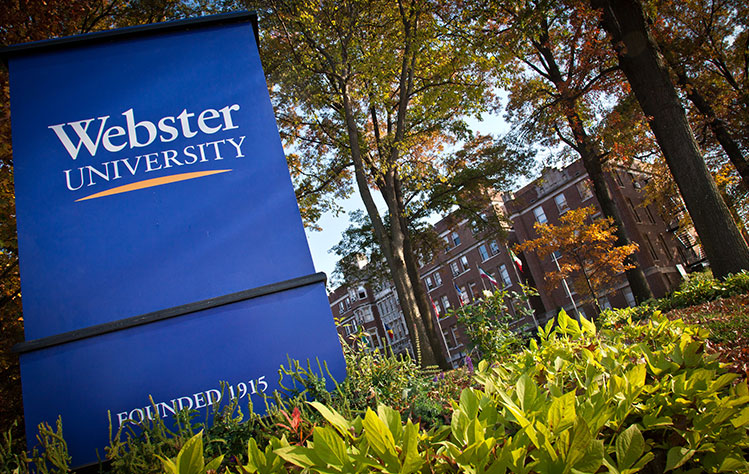
Chiron Community Giving Foundation Awards the Webster Institute for Clinical Scholarship a One-quarter Million Dollar Grant
July 28, 2025
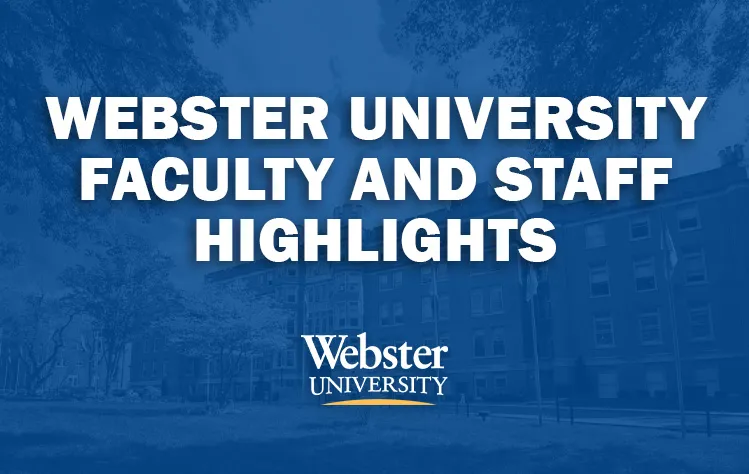
Faculty and Staff Highlights: Bruce, Cables, Chakaryan, George, LaCubbert, Martin, McAllister, Musangali, Rockwell, Smith
May 12, 2025

Faculty and Staff Highlights: Assner-Alvey, Belo, Chase, Chaudhuri, Christeson, Corrigan, Hayes, Martin, Pichaske, Turaeva
April 14, 2025
